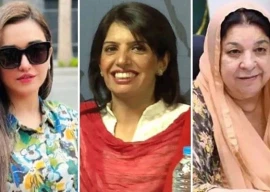
In an encounter that still freezes my blood I interviewed a widow with four children in Jallozai. My interpreter came from the same area as the woman and spoke her dialect, there was nothing lost in translation. She had already sold a boy for $100 and would sell a girl as well. ‘Agents’ prowled the camp looking for children for sale. Cash in the hand. No questions asked. Boys for preference but we take girls as well but not for top dollar.
Digging deeper there were ‘cinemas’ that showed child pornography in the city and at least one mainstream cinema that had daily screenings of ‘regular’ pornography, a phenomenon that I later discovered was common across the country. This gradually faded with the availability of cheap VCs and later CDs but may still be found in most cities especially close to the major bus stations.
Empirical research into the involvement of children in the sex industry is understandably thin on the ground. Save the Children (Sweden) conducted research nationally in 2004-05 and published its findings in a report titled “Commercial sexual exploitation of children, a situation analysis of Pakistan”. It cites 13 different contexts of exploitation spread across every province, rural and urban, and concludes that child sexual abuse (CSA) is endemic, deeply rooted in culture and not susceptible to change. The report makes two pages of detailed recommendations. I can find no evidence that any of the recommendations have been taken up at any level in any province.
The Save the Children report makes only the briefest mention of the internet in the context of CSA — which was written before the global explosion in online child pornography. An American city police chief is recently on record having said that it has reached epidemic proportions and is to all intents and purposes out of control. Law-enforcement agencies worldwide struggle to stay ahead of the pornographers but are mostly fighting a losing battle. There are frequent prosecutions as paedophile ‘rings’ are busted but the rate of prosecution is far exceeded by the rate of proliferation.
It is against this background — and historically the sexual and commercial abuse of children in Pakistan goes back perhaps several hundred of years — that the Kasur incident that is (briefly) dominating the headlines must be seen. The reports from the children who were victims are credible, consistent and match exactly the methodologies of those who sexually abuse children globally. These children are not lying. Not making up stories. And they are not alone as the citations above testify to.
If only a single copy of the many clips made of the Kasur children is uploaded to the internet or sold commercially on a CD, then that single copy will have been viewed and duplicated countless thousands of times. I have no intention of going to look for anything of this nature originating from Pakistan (and I would advise anybody reading this not to do so either — the police internationally can be remarkably vigilant) but I have no doubt that it is there.
Currently I am not aware of any legislation that specifically covers the production of child pornography in Pakistan. The country as a whole is a paedophiles’ paradise, particularly for those with an inclination towards young boys. Thus far I have heard no reports of sex tourism but it is probably only a matter of time before I do, and the children of Kasur are going to be quietly forgotten. Those who abused them will walk away eventually and the abused children of Pakistan will weep in pain and silence.
Published in The Express Tribune, August 13th, 2015.
Like Opinion & Editorial on Facebook, follow @ETOpEd on Twitter to receive all updates on all our daily pieces.












COMMENTS (5)
Comments are moderated and generally will be posted if they are on-topic and not abusive.
For more information, please see our Comments FAQ